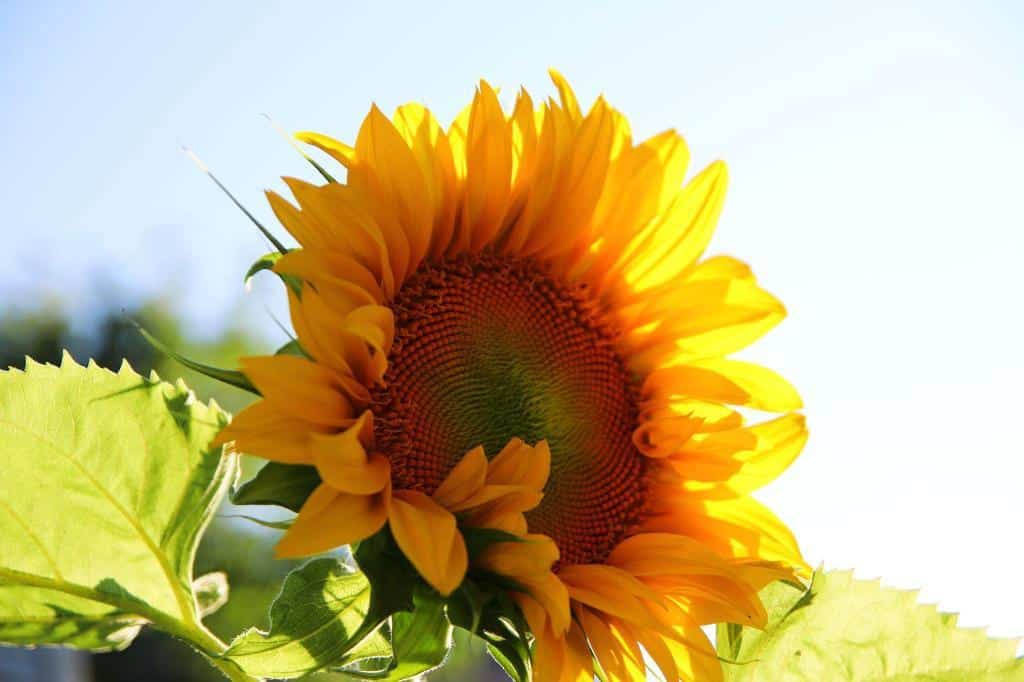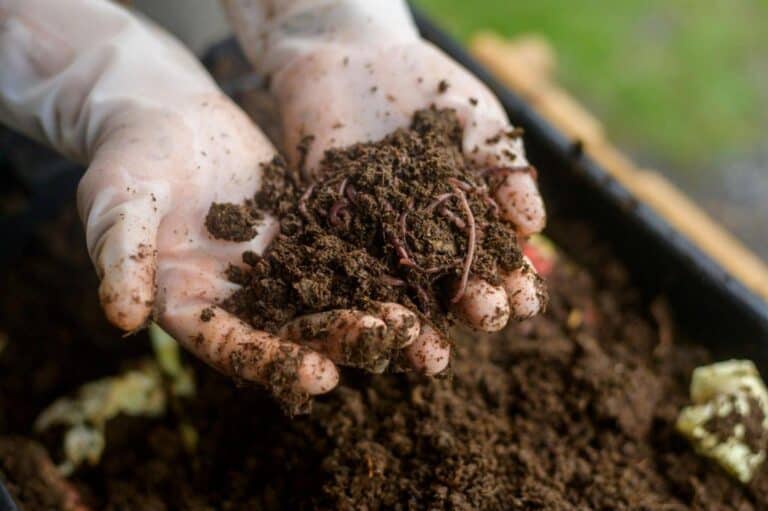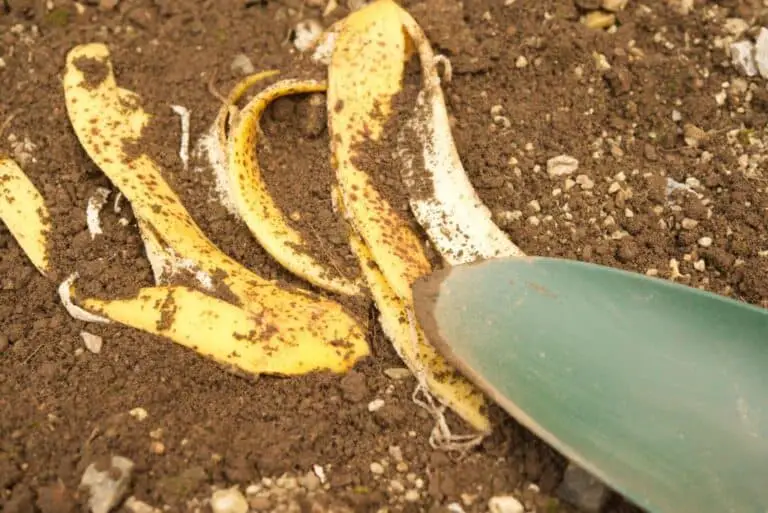Are Sunflowers Poisonous and Toxic To Other Plants?

It’s the time of year when homeowners across the country are planting their gardens. And while there are many beautiful flowers to choose from, one that is often overlooked is the sunflower. But what many people don’t realize is that sunflowers can actually be harmful to other plants.
So, are sunflowers poisonous and toxic to other plants? While sunflowers are not harmful to humans or animals, they can be deadly to other plants.
If you’re planning on planting sunflowers, make considerations to keep them away from other greenery that can’t get along as companion planting to sunflowers.
Companion planting is a useful gardening strategy in which different plants are planted within the same area. Companion planting is done to enhance and complement one another’s growth, and also attract or repel harmful pests.
What is Companion Planting?
Companion planting is also referred to as intercropping and can help with fast and efficient growth of a healthy garden.
Sunflowers are planted amongst numerous crops to enhance their growth. Sunflowers are a promising companion plant since they reduce weed pressure which ultimately enhances environmental conditions for growth.
There are numerous varieties of sunflowers that can be planted alongside an array of crops to support the growth and provide a colorful aesthetic to a garden. More specifically, sunflowers are excellent companion plants for cucumbers, squash, and corn.
Another reason why sunflowers are such a promising companion plant is because they are considered allelopathic, which means they inhibit the growth of the plants around them, including weeds that may deter the growth of other crops. However, the allelopathic properties of Sunflowers can also pose harmful threats to the surrounding plants, by releasing too many toxins into the soil.
While there is little research to suggest which plants are resistant to the allelopathic properties of sunflowers—and their seeds—there are some known crops which grow well alongside sunflowers.
What To Companion Plant With Sunflowers
Sunflowers are often planted alongside corn, beans, and squash. This companionship is often referred to as “The Three Sisters” which was planted by Native Americans that first came to modern day America from South America and Mexico and was later adopted by European settlers in the “New World”.
In this instance of companion planting, corn provides structural support for beans, while the beans pull nitrogen from the air and return it to the corn’s roots, and then finally, squash foliage creates shade that controls weeds and helps the soil retain moisture.
With this companionship, sunflowers are oftentimes added as the fourth pollinator. Sunflowers are useful in this trio of crops since they give the vines an additional supportive structure to grow on.
Sunflowers also serve as reliable companion plants for the cabbage family, which includes kale, cauliflower, and broccoli. Additionally, sunflowers can also grow alongside soybeans, which are generally tolerant to all companion plants.
Sunflowers are also planted alongside cucumbers since their sturdy stalks provide additional support for cucumber’s vines. This is a powerful companionship, where cucumbers’ large leaves take the place of squash, shading the soil, keeping out weeds and helping to retain moisture in the soil.
Sunflowers Allelophatic: Toxic and Poisonous to other Plants
Sunflowers are beautiful and bright, adding cheer to any garden. But did you know that sunflowers can be toxic?
Sunflowers produce several different chemicals that are allelopathic, including sesquiterpene lactones and phenolic acids. This substance is released from the leaves, stem, and roots of sunflowers, and can stay in the soil for up to six years.
While it may not seem like a big deal, over time this allelopathic substance can have a significant impact on the growth of other plants. The allelopathic properties of sunflower plants make them poisonous to many other plants.
These toxins can damage the roots, leaves, and stems of other plants, preventing them from growing properly. This can lead to stunted growth and a decreased yield. Sunflower allelopathy is also responsible for the fact that many other plants will not grow near them, unless they are planted in raised beds or containers.
What Not To Plant Next To Sunflowers
Because sunflowers are allelopathic, they release toxins that can reduce the growth of the plants around them. While this can be helpful in controlling the overgrowth of weeds, it can also present issues for other crops in a garden.
Potatoes and pole beans are two garden plants you should avoid planting next to sunflowers.
Lettuce is one of the most popular garden plants, but it doesn’t do well next to sunflowers. The two plants compete for nutrients and water, and the lettuce will quickly start to yellow and wilt.
And finally, avoid planting delicate flowers like impatiens or petunias next to sunflowers. Because, like corn and beans, sunflowers tend to grow tall and fairly quickly. This can cast shade on the other plants in your garden.
So now you know what not to plant next to sunflowers.
Can You Plant Different Types of Sunflowers Together?
Multiple varieties of sunflowers can be planted together, offering a colorful range of lovely flowers within a garden. It is very common to plant sunflowers in succession with one another.
Succession planting is done to increase the presence of a single crop during peak season, and is done so using an efficient use of space and timing.
There are a couple ways to plant a succession plant. You can plant multiple types of sunflowers that have varying lengths of maturity times or you can plant the same variety in two week intervals.
There are many different varieties of sunflowers, with one of the most common being Mammoth. On average, Mammoth sunflowers grow to be around 12 feet. The ‘Teddy Bear’ Sunflower is a dwarf type sunflower, averaging only two to three feet tall.
Succession planting Sunflowers in rows will ensure continuous growth of the flower, offering many varieties and options for planting. Sunflowers are rather versatile, and come in many colors and sizes which make for a pleasant scene once they have reached full maturity.
There are certain variants of sunflowers that are grown for commercial seed oil use or edible use. However, other variants of sunflowers, such as the Peredovik flower, are planted for wildlife conservation.
Peredovik sunflowers are valued in wildlife planting, and their small seeds feed birds. Another benefit to this variety is that they are open-pollinated, meaning seeds can be collected and replanted in following years as opposed to hybrid varieties that have seeds that if grown again will produce mixed results.
Are Sunflower Seeds Toxic To the Soil?

Sunflower seeds contain allelopathic properties. The seed shell has toxic chemicals, and when built up in the soil, can kill other plants. There is limited research available as to exactly which plants can withstand the toxins of sunflower seeds.
However, a list provided by Toronto Master Gardeners, suggests that the following flowers are resistant to the toxicity of Sunflower seeds: Black-eyed Susan, Dahlia, Iris, Echinacea, Lemon balm, Mint, Pink carnations, and Thyme.
To control the toxic chemicals found in Sunflower seeds, the plant can be cut back, chopped, and composted. Rain and natural decomposition should eliminate most toxins in the soil, making it very useful for the next year.
Are Sunflowers Poisonous and Toxic To Cats and Dogs?
No, sunflowers are not poisonous to cats or dogs. The pollen from sunflowers can cause allergic reactions in some animals, but the flower itself is not toxic. If your pet has eaten a sunflower, they may experience vomiting or diarrhea, but this is not usually serious and will resolve on its own. If you are concerned about your pet’s health, please contact your veterinarian.
Although sunflowers are not poisonous to cats and dogs, they can cause gastrointestinal upset if eaten in large quantities. The seeds of the sunflower are the most likely to cause problems, as they can become lodged in the intestines and cause obstructions. If your pet eats a sunflower, watch for vomiting, diarrhea, or constipation and contact your veterinarian if these symptoms persist.
Are Sunflowers Poisonous and Toxic To Other Plants: Conclusion
Sunflowers are beautiful, cheerful flowers that seem to radiate happiness. But did you know that they can also be poisonous? The sunflower is a member of the Asteraceae family, which also includes daisies and chrysanthemums. These plants contain a toxic compound called pyrethrin, which can cause skin irritation, vomiting, and diarrhea if ingested.
In addition to being poisonous, sunflowers are also terrible companion plants for some varieties of plants. They compete for space and resources with other plants, and their large roots can damage delicate underground systems like sewer lines and irrigation pipes. So if you’re looking for a plant to brighten up your garden, steer clear of the sunflower.






